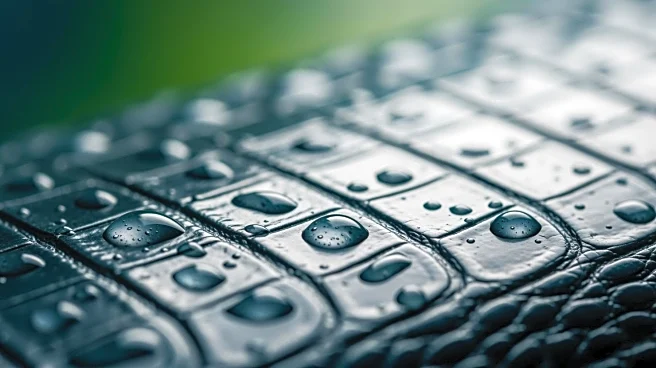What's Happening?
Recent research has highlighted the remarkable ability of Siamese crocodile blood to resist infections from E. coli and five other bacteria. This discovery suggests that compounds found in the blood of these critically endangered reptiles could be candidates
for future antibiotics. The study is part of a broader investigation into how various species contribute to human health, emphasizing the importance of biodiversity. The Siamese crocodile, currently facing a decreasing population trend, is one of many species whose unique biological traits are being studied for potential medical applications.
Why It's Important?
The potential medical applications of Siamese crocodile blood could have significant implications for the development of new antibiotics, addressing the growing concern over antibiotic resistance. As traditional antibiotics become less effective, the discovery of new compounds from natural sources is crucial. This research underscores the importance of preserving biodiversity, as many species may hold the key to future medical breakthroughs. The decline in species like the Siamese crocodile highlights the urgent need for conservation efforts to protect these valuable biological resources.
















